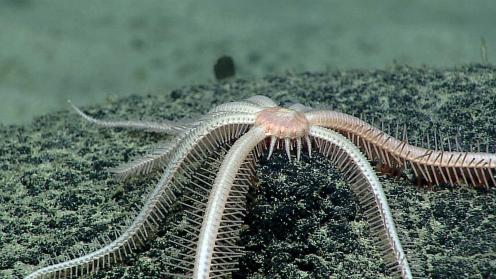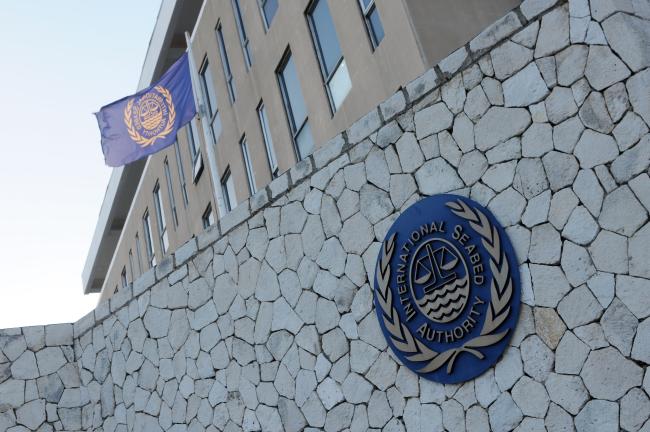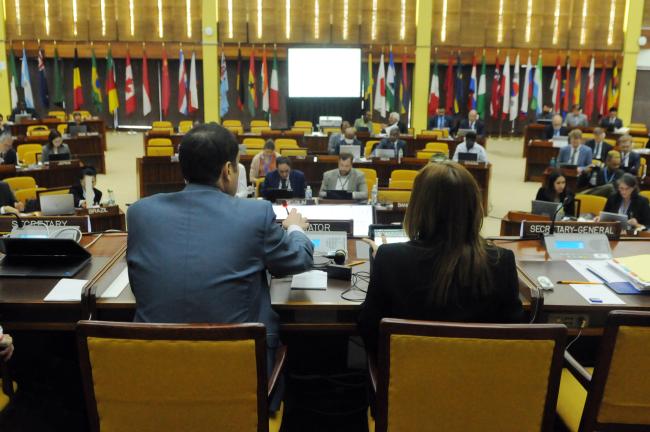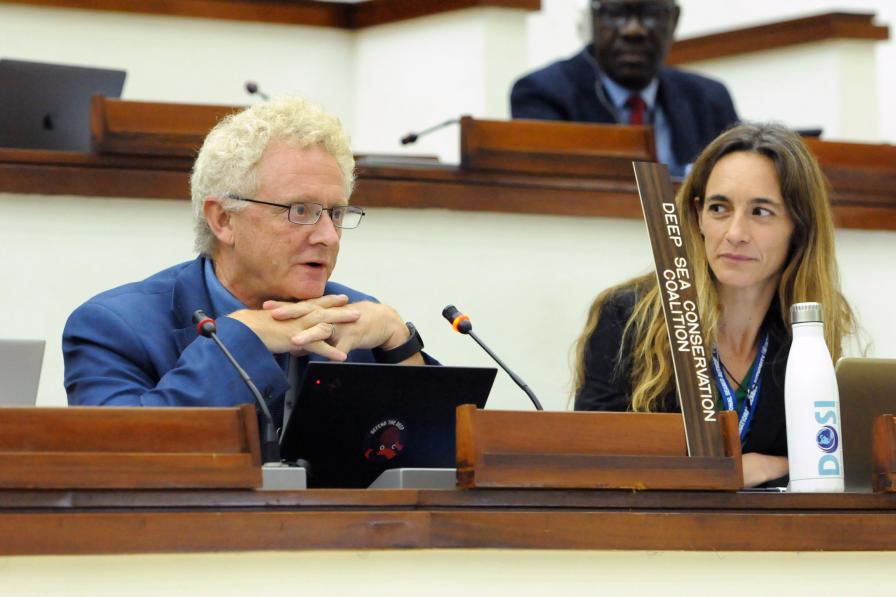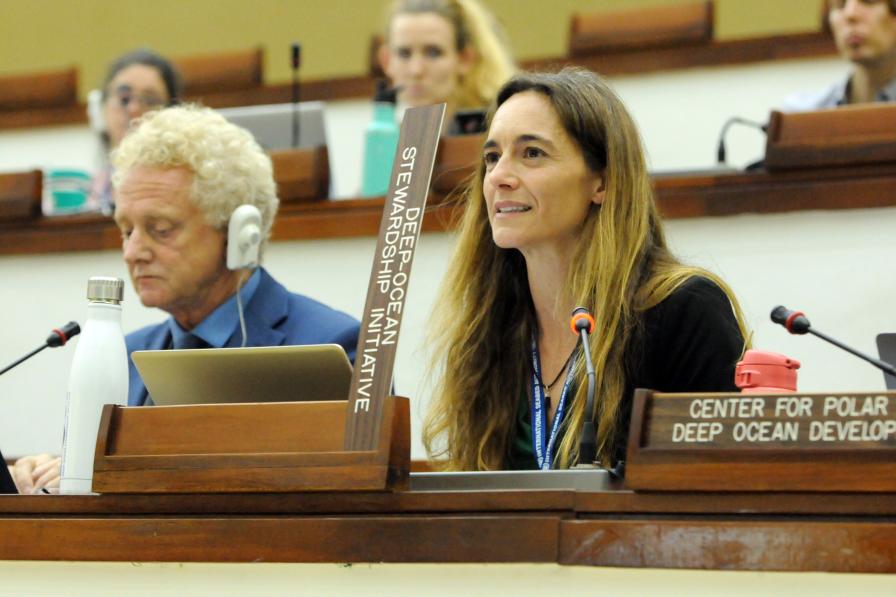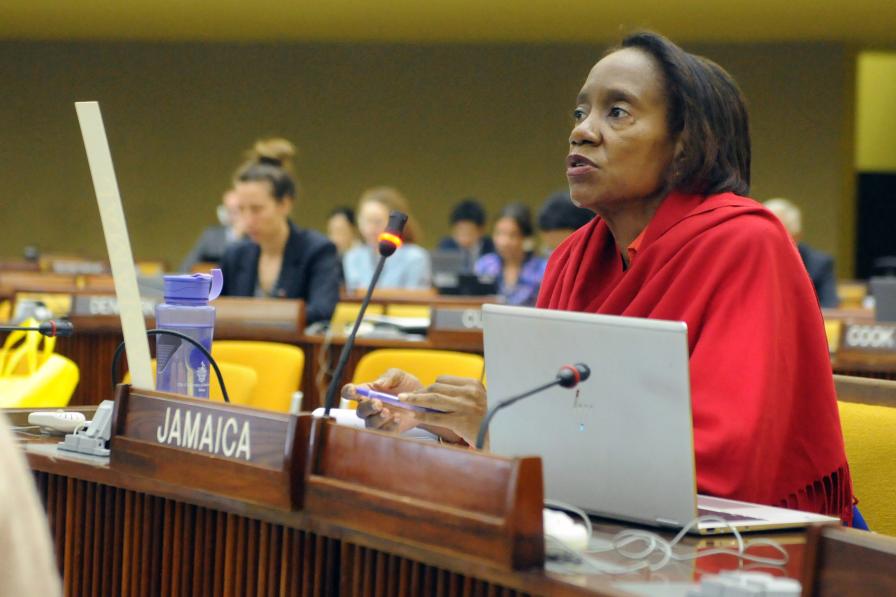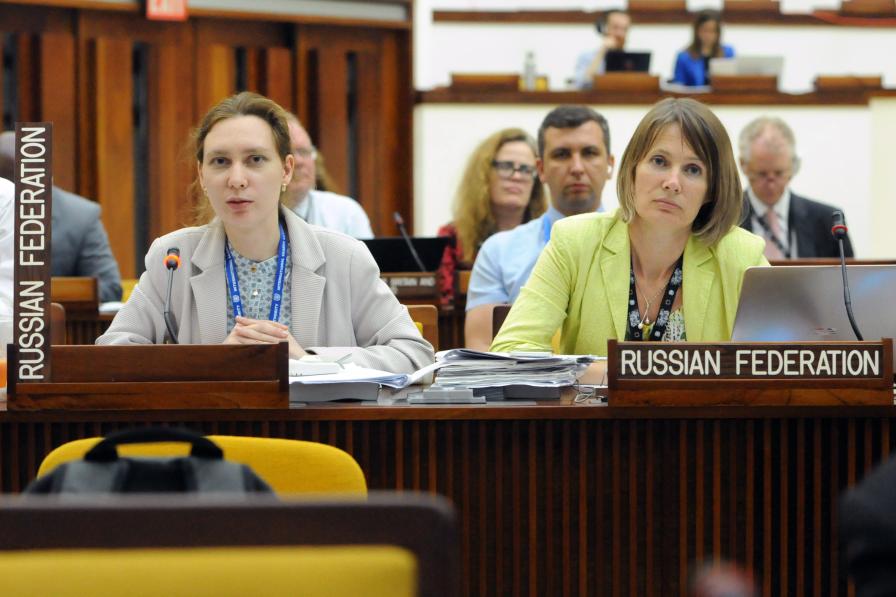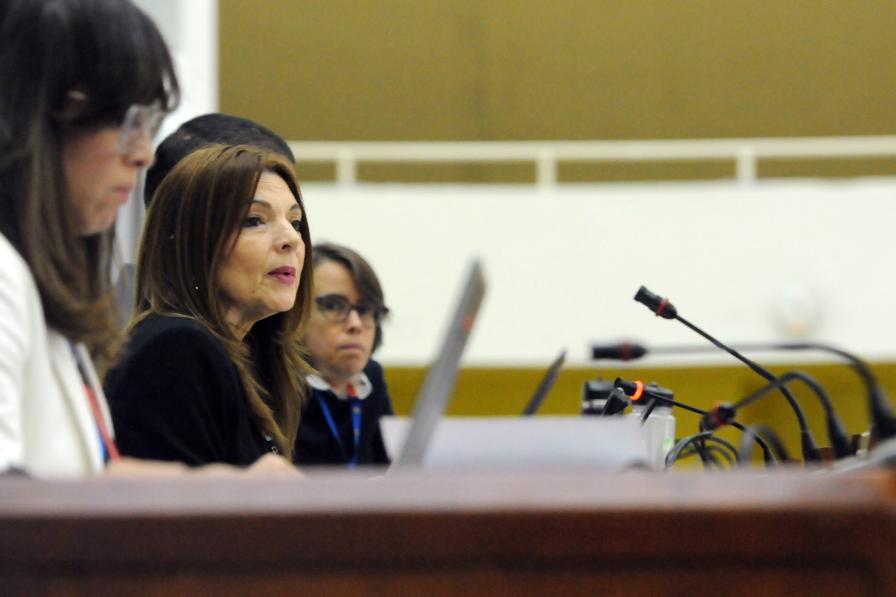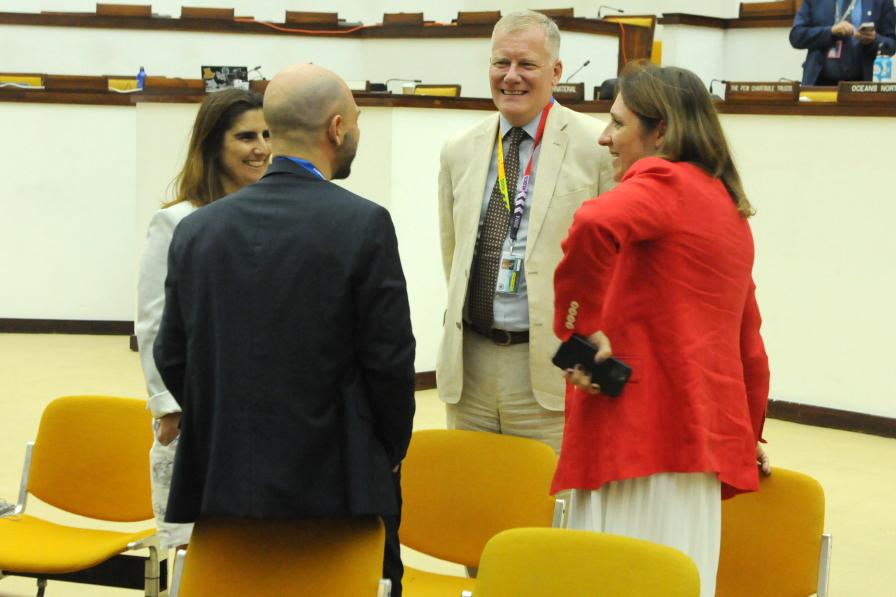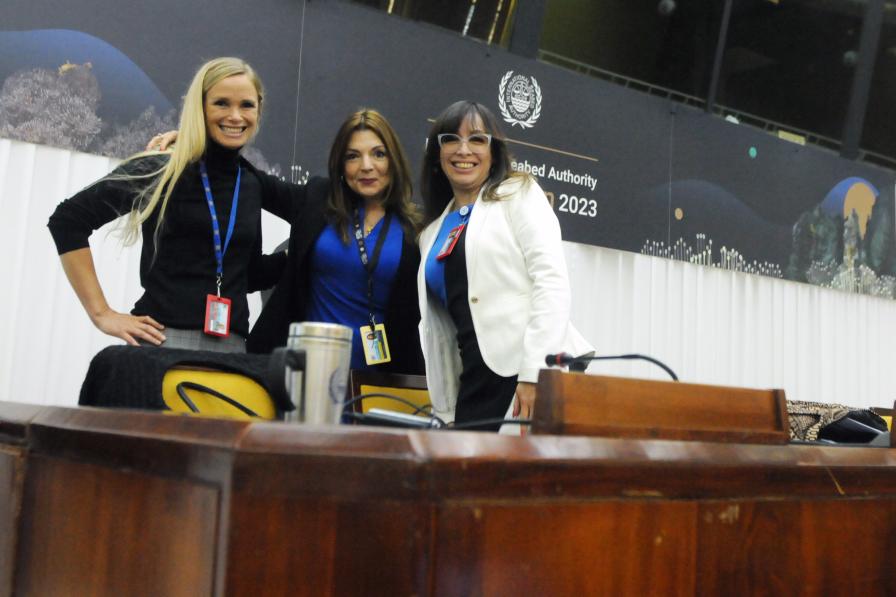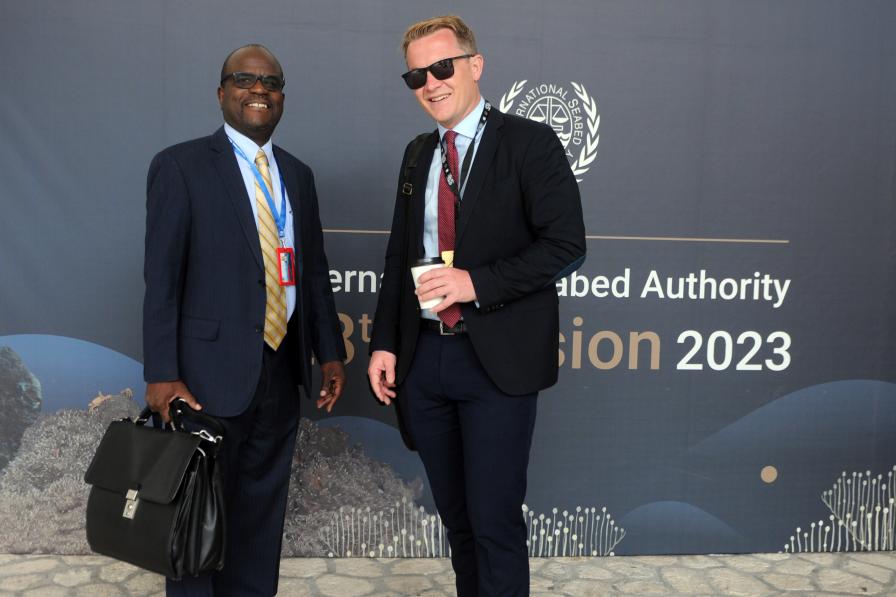The International Seabed Authority (ISA) Council continued its work on Tuesday with a focus on institutional matters. The relevant Working Group, co-facilitated by Georgina Guillén Grillo (Costa Rica) and Salvador Vega Telias (Chile), met throughout the day, addressing relevant draft exploitation regulations for deep sea mining.
The Working Group focused on:
- the review of a plan of work;
- a section addressing annual, administrative, and other applicable fees;
- use of terms and scope; and
- principles, approaches, and policies.
On the review of a plan of work, delegates discussed whether relevant/adjacent coastal states should participate in the review of activities. With divergent views expressed, most delegates agreed that coastal states are a cross-cutting issue in the draft regulations, pointing to the establishment of an informal working group to address references to coastal states intersessionally under the Working Group on the protection and preservation of the marine environment, which met last week.
Different views remain in many provisions of the same draft regulation, including on: the procedure for the report on each review and the responsible ISA organ for conducting it; the information to be provided by the contractor, as required by the Secretary-General, for the review; and potential additional requests to initiate discussions on any matter connected with the plan of work or the exploitation contract. Delegates agreed to make the findings and recommendations resulting from the review publicly available.
On a section addressing annual, administrative, and other applicable fees, delegates discussed draft regulations on the annual reporting fee; the annual fixed fee; the application fee for a plan of work; other applicable fees; and review and payment. Co-facilitators Guillén and Vega suggested, and delegates agreed, that the Council should request the Finance Committee to clarify the purpose, use, and mechanism to calculate each annual and administrative fee.
Regarding use of terms and scope, Co-facilitator Guillén reminded delegates of prior discussions on using the exploration regulations language as much as possible. Delegates exchanged views on provisions noting that: terms and phrases used in the regulations are defined in the schedule; and nothing in the regulations shall affect the rights, jurisdiction, and duties of states under the UN Convention on the Law of the Sea (UNCLOS).
On a provision noting that the regulations are complemented by standards and guidelines as well as by further rules, regulations, and procedures of the ISA, in particular on the protection and preservation of the marine environment, delegates discussed potential references to regional environmental management plans and conservation and management measures.
On a provision noting that the regulations are subject to the provisions of UNCLOS and the 1994 Implementing Agreement, delegates discussed whether to include reference to other applicable rules of international law, not incompatible with UNCLOS. They further considered the placement of the reference to the uniform and non-discriminatory application of the regulations.
Regarding principles, approaches, and policies, an extended discussion took place on a proposal to add language regarding activities in the Area and other activities in the marine environment being carried out with reasonable regard for each other. Delegations also engaged in a lengthy exchange of views on one delegation’s proposal to include a provision suggesting striking a balance between exploitation and the preservation of the marine environment. Discussions will continue on Wednesday, 29 March.
In the evening, a side event hosted by Nauru Ocean Resources Inc. provided an update on the social impact assessment for the NORI-D Polymetallic Nodule Collection Project.
Text written and edited by Asterios Tsioumanis, Ph.D., María Ovalle, and Pam Chasek, Ph.D.
All ENB photos are free to use with attribution. For the 1st Part of the 28th Annual Session of the ISA, please use: Photo by IISD/ENB | Diego Noguera
To receive free coverage of global environmental events delivered to your inbox, subscribe to the ENB Update newsletter.
